This Is Day of the Dead in Puerto Vallarta — From Cemetery Visits to Parades and the World's Tallest Catrina
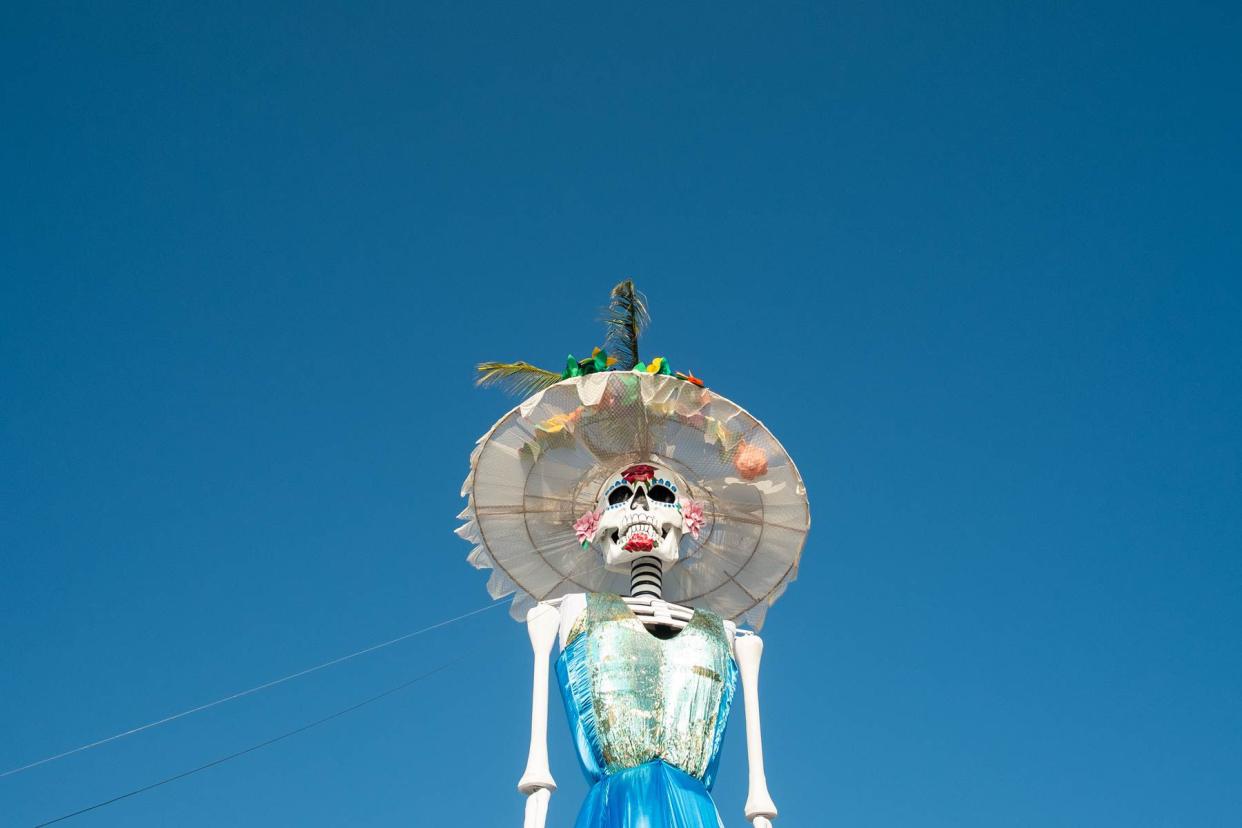
Mariah Tyler
In Mexico, Día de los Muertos, or Day of the Dead, is a tradition dating back to the Aztecs in which families gather in cemeteries and erect home altars with symbolic spiritual ofrendas (offerings) for their lost loved ones. The holiday has garnered more international attention than ever in recent years, and traveling to observe and participate in Día de los Muertos in Mexico has surged in popularity — in part due to the Disney Pixar film "Coco" (2017) and the depiction of a Día de los Muertos parade in James Bond film "Spectre" (2015).
Throughout Mexico, towns and cities host processions — and sometimes even weeklong events — for both locals and visitors to take part in. We were invited to experience the holiday in Puerto Vallarta, in the state of Jalisco, where we admired the beautifully made calaveras (decorative skulls) and catrinas (the elegant female skeleton originally depicted by famous Mexican artist José Guadalupe Posada that became the icon for the holiday) and watched the parade along the Malecón (Puerto Vallarta's mile-long waterfront esplanade).
This year, the resort town set out to build and break the record for tallest calavera catrina and officially achieved the Guinness title for 2022. The winning catrina towers above the Malecón and looks out onto Banderas Bay in a stunning blue dress with palm tree feathers adorning her hat. From the downtown parade to the cemetery and many ofrendas, Day of the Dead is a unique time to visit Puerto Vallarta and to learn and appreciate the touching tradition local families have celebrated for generations.
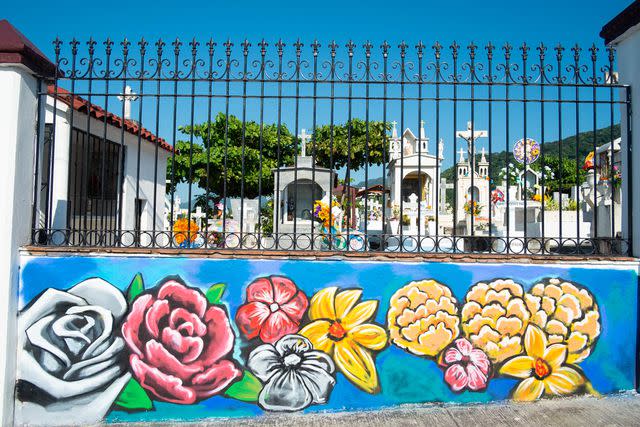
Mariah Tyler
Throughout the day, families make a pilgrimage to the cemetery to lay flowers, most prominently marigolds, and beautify the graves of their ancestors. The oldest cemetery in Puerto Vallarta is Pantheón 5 de Diciembre — named for the surrounding neighborhood — which dates back to 1916. The street leading to the entrance bustled with vendors selling flowers and tacos to the families making the visit to the graves.
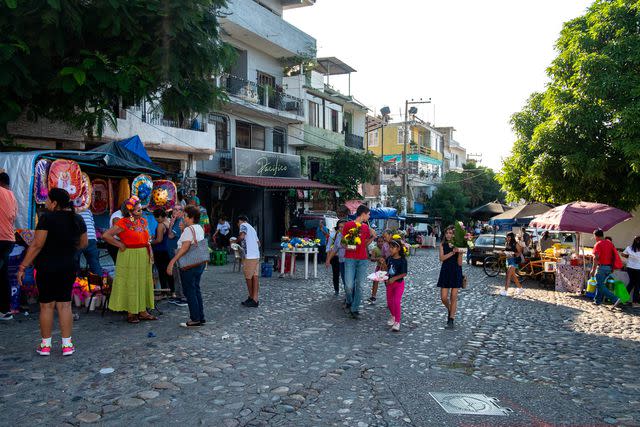
Mariah Tyler
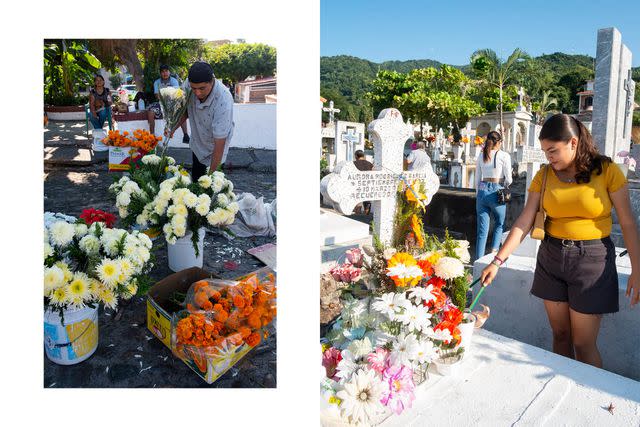
Mariah Tyler
The mood is somber, but the love and honor for ancestors is palpable as you observe the care that goes into freshening up tombstones and adorning them with items like papel picado (a decorative tissue paper craft) and portraits of religious figures. Some locals were open to talking about the loved ones buried there and were welcoming guests at the entrance. When visiting a cemetery, especially as a tourist, it is always important to be respectful and mindful of others.
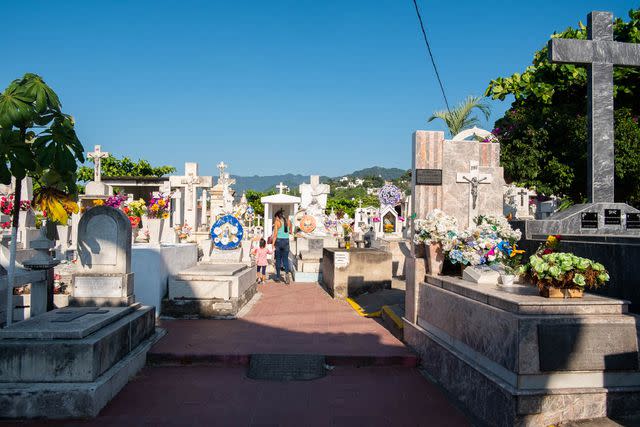
Mariah Tyler
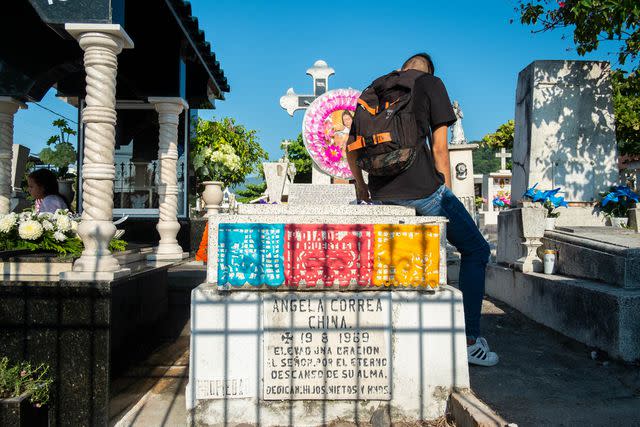
Mariah Tyler
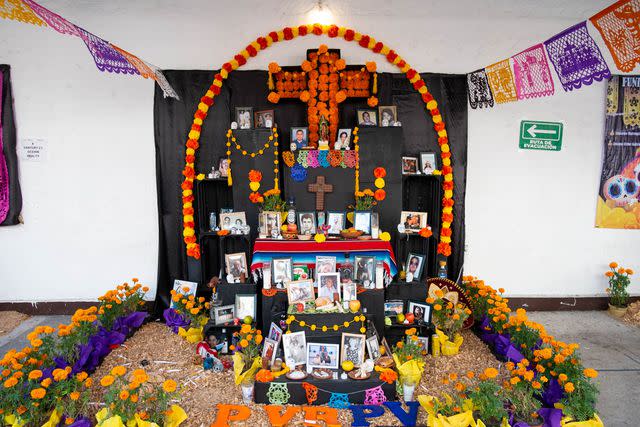
Mariah Tyler
Locally crafted catrinas and calaveras dotted our walk towards the center of the celebrations along the Malecón and around the Plaza de Armas, the main square. Here, an array of ofrendas made to honor people and groups important to the city were on display. The altars typically have papel picado, marigolds, salt, water, pan de muertos (bread of the dead), photographs, incense, and sugar skulls. Each item is believed to help guide the spirits in the night. Some will also have personal items and favorite foods and treats of the deceased.
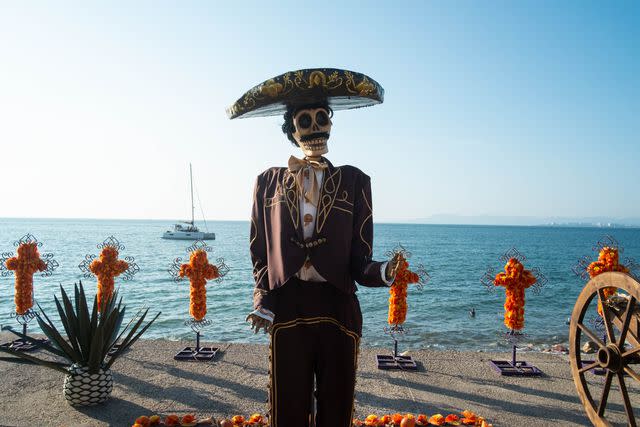
Mariah Tyler
The Malecón is lined with familiar calaveras, representing everyone from Frida Kahlo and Marilyn Monroe to members of The Beatles. Here is a skeleton figure honoring the famous Jalisco-born singer and songwriter Vicente Fernández Gómez, who passed away last December.
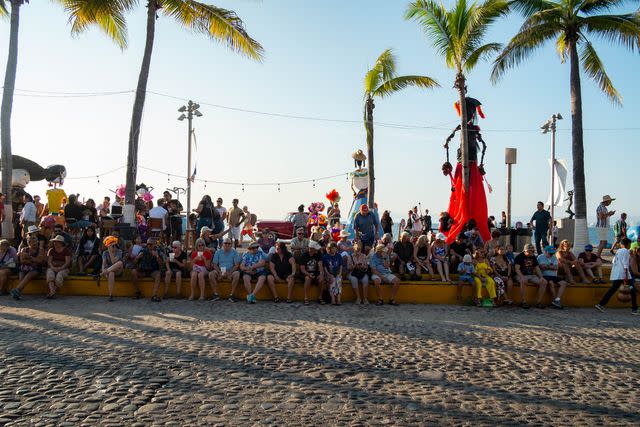
Mariah Tyler
Hundreds of tourists and locals line the streets waiting for the parade procession. Parades were not always a part of the tradition, but for some areas, a procession depicted in a James Bond film in 2016 spurred the idea for tourism boards to host parades. In Puerto Vallarta, the parade has been happening for seven years and consists of many local groups of all ages.
A parade participant shows off an elaborately colorful costume in traditional skull makeup. The use of skeletons and skulls remind us that death is a part of life and in the end, we are all just bones. A core belief of the holiday is to not fear death, but to commemorate it.
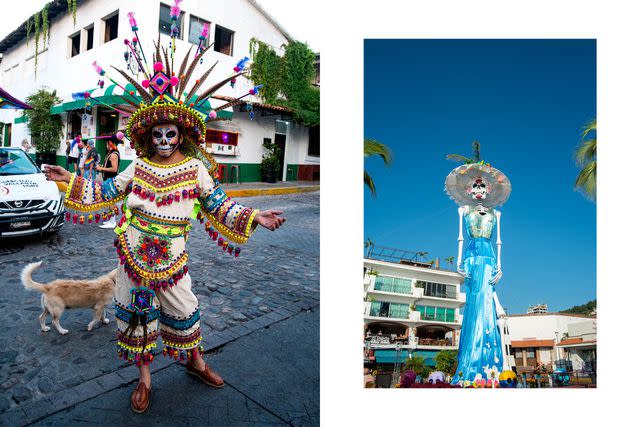
Mariah Tyler
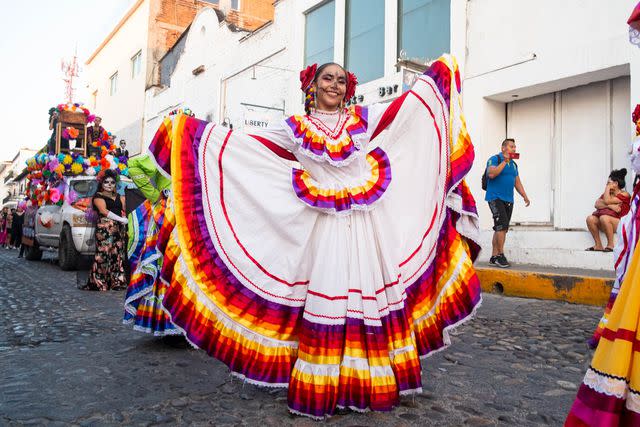
Mariah Tyler
As the parade starts, young females lead the procession dressed in traditional attire and costumes. Drums beat and a ballet folklorico group shows off their dance moves in colorful dresses. There were both smiles and stoic faces setting the tone for the parade but many were more than happy to stop and pose for the camera. Some royally dressed young girls perched atop cars wore stunning costumes and magnificent floral headpieces.
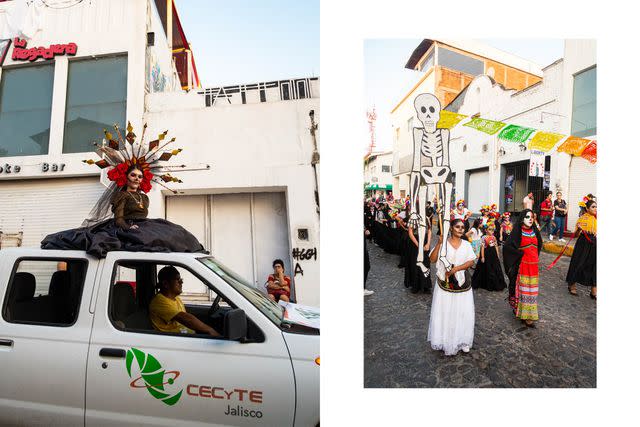
Mariah Tyler
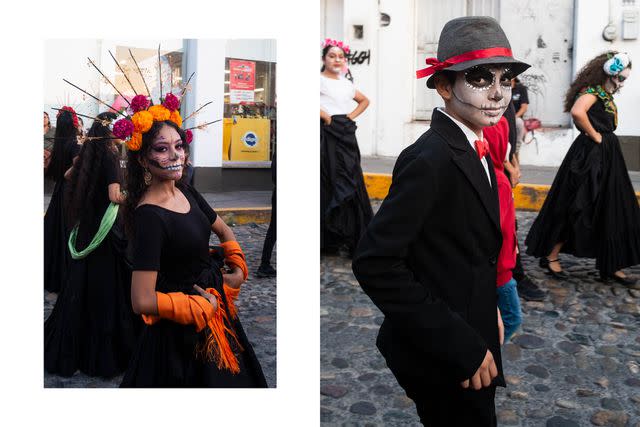
Mariah Tyler
Jalisco is well known for tequila, mariachis, and charros (traditionally dressed Mexican horse riders). The Charrería (competitive equestrian games) is Mexico’s national sport, and it’s a point of pride for anyone who learns to take part. Below, a young charro in skull face sits perfectly on the back of a donkey following a group of adult men riding as charros in the parade.
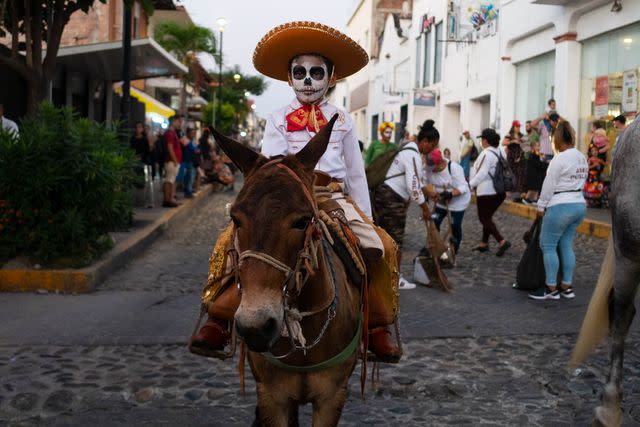
Mariah Tyler
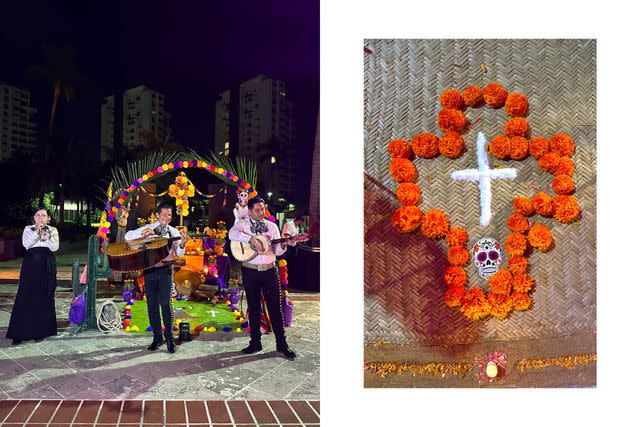
Mariah Tyler
After the parade, we went back to Marriott Puerto Vallarta Resort and Spa and experienced their guests' exclusive Day of the Dead dinner. Guest packages offer floral headpieces, catrina makeup sessions, and a special dinner experience on the resort plaza. It’s an easy way to get a taste of participating in celebrations without crashing intimate family gatherings. The mariachi band played as a male and female skeleton duo danced around marigold-strewn and candle-lit spaces. Each department at the resort is tasked with erecting an ofrenda, and guests vote on the best one.
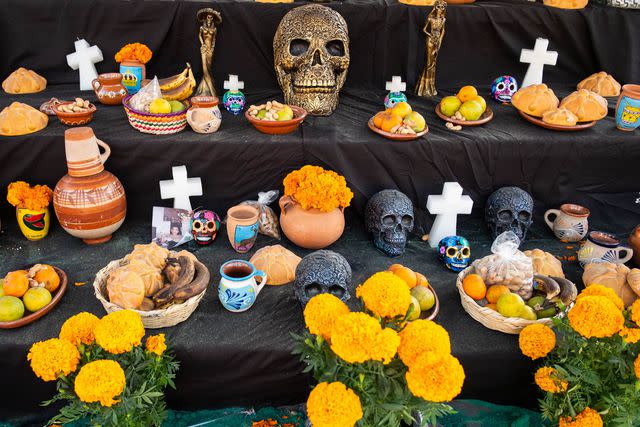
Mariah Tyler
The detail and care behind each ofrenda is illustrative of how much love and respect is paid to those in the afterlife. To remember and carry the spirit of the dead helps heal any pain or sorrow that lingers for the families and loved ones. Public altars may honor famous people or multiple people at once. Some even honor pets.
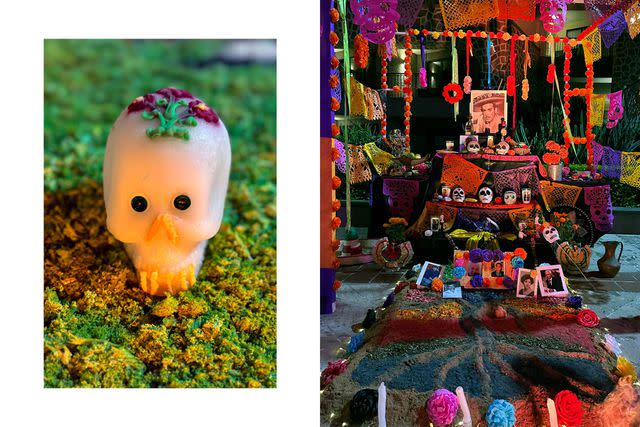
Mariah Tyler
Standing in front of an ofrenda at night while mariachi music plays, smelling the marigolds and incense as the candles flicker and the papel picado sways in the wind, you get a sense that other spiritual worlds may really be present. To experience this as an outsider feels like a privilege and a gift — one that will remain in memory long after the return home.
For more Travel & Leisure news, make sure to sign up for our newsletter!
Read the original article on Travel & Leisure.

